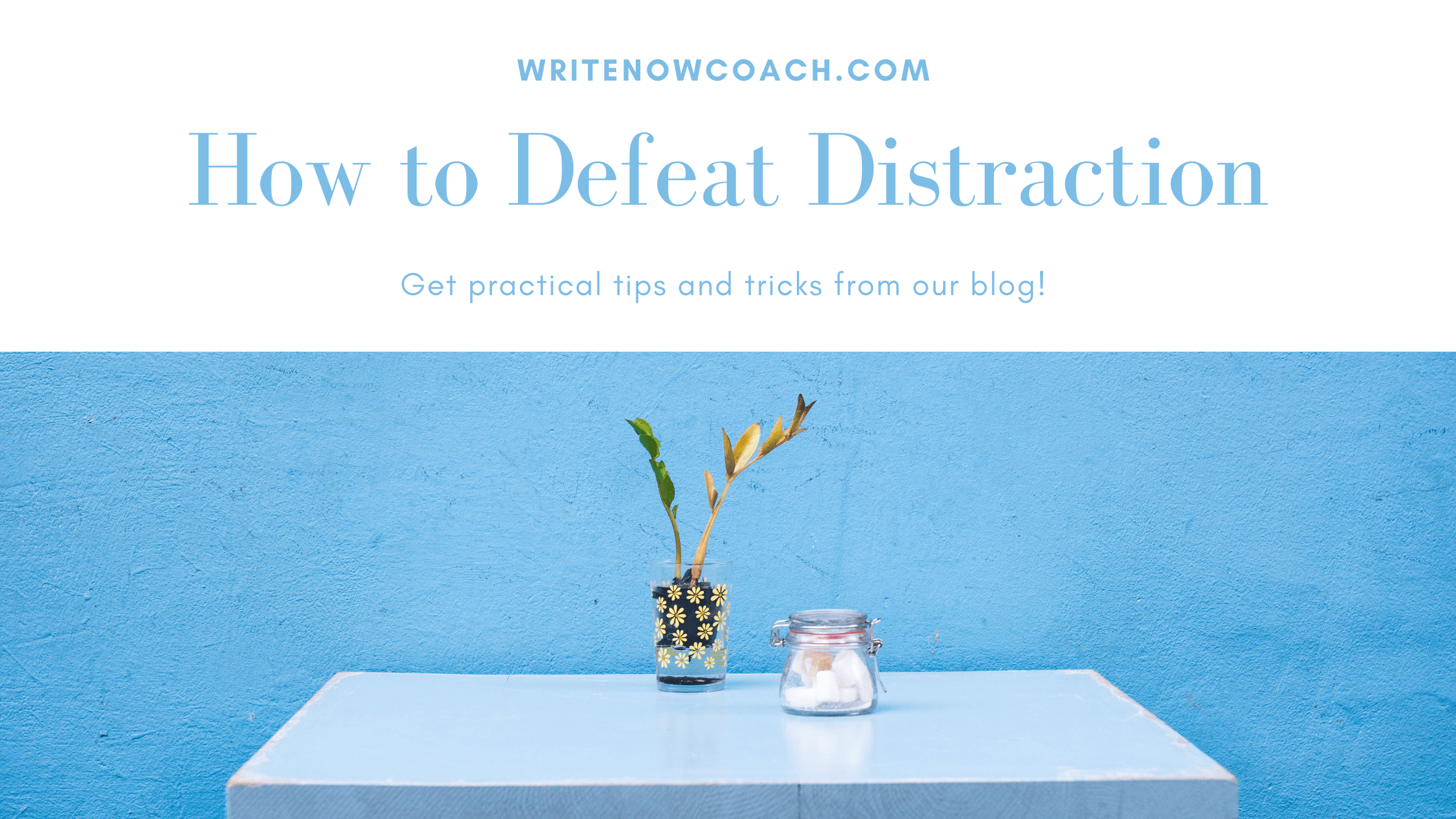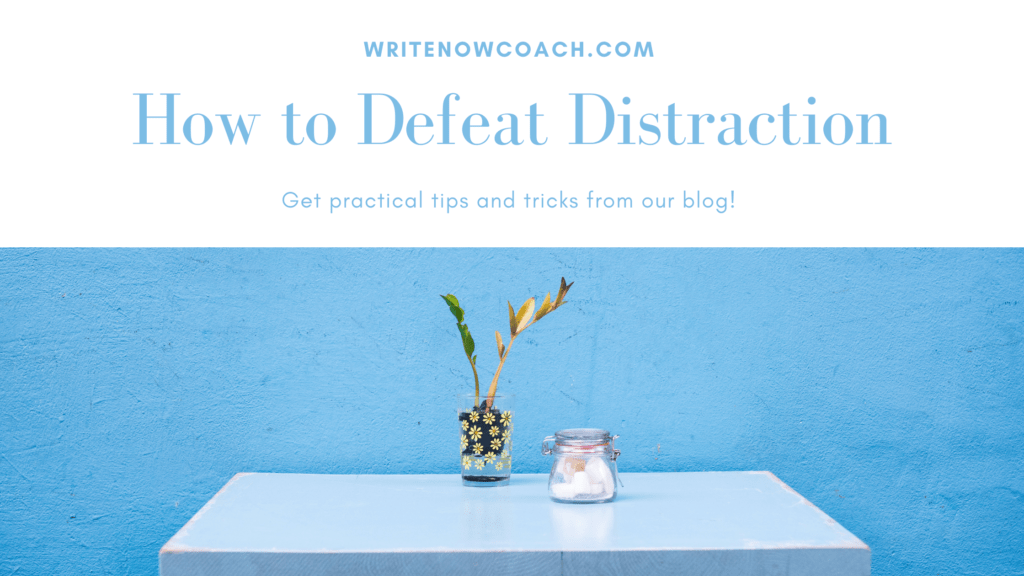How to Defeat Distraction
October 6, 2020
Note From Rochelle
Dear Writers,
I’m still looking for authors who’d like to share their favorite books for my Friday #WritersRead feature. If you’re a published author and have a book you’d like to share with readers, check out my call for writers on the blog:
Today’s post will help you overcome distraction and write more.
Enjoy!
Rochelle
How to Defeat Distraction
by Rochelle Melander
Feeling a bit distracted?
With coronavirus spiking in my state and across the country, the U.S. election approaching at a rapid pace, and the fires burning in California—who can focus?
It’s tempting to say, “I’ll just put off writing until after the election.” But guess what: after the election, something else will show up to distract us. (It’s 2020—got any bets? Visitors from Venus, perhaps?
Let’s take a positive twist on 2020: this storm of distractions gives us the opportunity to master our focus. If we can write through this, we can write through anything.
But before I get to the solution, let’s start here:
stop blaming yourself.
We rail at the world, curse our noisy neighbors, and blame our lack of focus. If only we were more disciplined, we’d stop checking the news every ten minutes. But the truth is, distractions happen. When we understand that distractions are the RULE rather than the EXCEPTION, we can find a solution. We’re not broken. We need a better plan.
Here’s my plan to help you defeat distraction and write.
Create a writing bubble
As a society, we put a bubble around certain events like attending plays or movies. For the most part, we agree to turn off our cell phones and focus on the performance. We need to create this kind of a bubble around our writing time. Here’s how:
- Schedule writing time in your calendar. (It also helps to know what you’ll be writing for each session.)
- Work in a space that is conducive to writing for you.
- Give yourself the same bubble you’d have at a play: hide your phone, turn off social media, and shut down the internet.
- Commit to a short writing sprint followed by a break. Even if you have set aside 3 hours to write, plan to write in 20-45 minute sprints and then take a 5-15 minute break.
- Do something generative during your break: walk, listen to music, have a snack, do a yoga pose, fold laundry—the goal is to get out of your head and into the world.

Make a contingency plan
You’ve created a writing bubble. But here’s the thing: you’re still going to get distracted.
Distractions come in two varieties: external and internal. Your job: discover what distracts you and plan how to overcome it.

Defeat external distractions
What kinds of external things distract you? Phone calls and texts? Children, animals, and delivery people? Piles of laundry? Make a list.
Make a plan. What helps you to refocus when you get distracted? Or what helps you avoid getting distracted? Can you work when the children are in their most-interesting class? Can you write long before or just after the delivery comes? Can you write in a room that doesn’t have piles of dirty laundry in it?
Defeat internal distractions
Earlier this year, I noticed that when I hit a particularly difficult patch in my writing, I turned to Twitter. Knowing why I was getting distracted helped me fix it. Your trigger might be different. Common triggers include:
+Self-criticism
+Not knowing the next step
+Fear
Make a plan. In order to overcome internal triggers and stay focused, we need to create a plan.
What helps you move forward even when you doubt yourself, feel anxious, or get bored? Common tools include:
+Mind-mapping or listing possible solutions
+Talking back to negative voices
+Feeling the feelings and moving forward
Write your plan
You now have a plan for both external and internal distractions. Create a when/then phrase to guide your writing sessions so that you know WHAT you will do to ditch distraction and focus. Here are some examples:
- When my children interrupt me, I will gently help them refocus on their work and get back to my writing.
- When I feel overwhelmed by my project, I will make a list of all the possible solutions.
- When I feel afraid, I will set a timer and write the worst paragraph I can.
Once you have a when/then statement, it can be helpful to write it on an index card and post it in a place where you will see it regularly.
Try it: Defeat Distractions
You’ve created a bubble. You know your triggers. You’ve got a plan.
Now work it.
As you do, make notes on what happens.
Many of my clients report that even after creating their plan, they are plagued by distractions. We look at their notes—and they revise their plans. They repeat this process until they find a plan that works most of the time.
Just like in meditation, we overcome distraction by refocusing. Even if it takes 100 times or more!

Leave a note in the comments to let me know how it went or share your best tools for defeating distraction!










